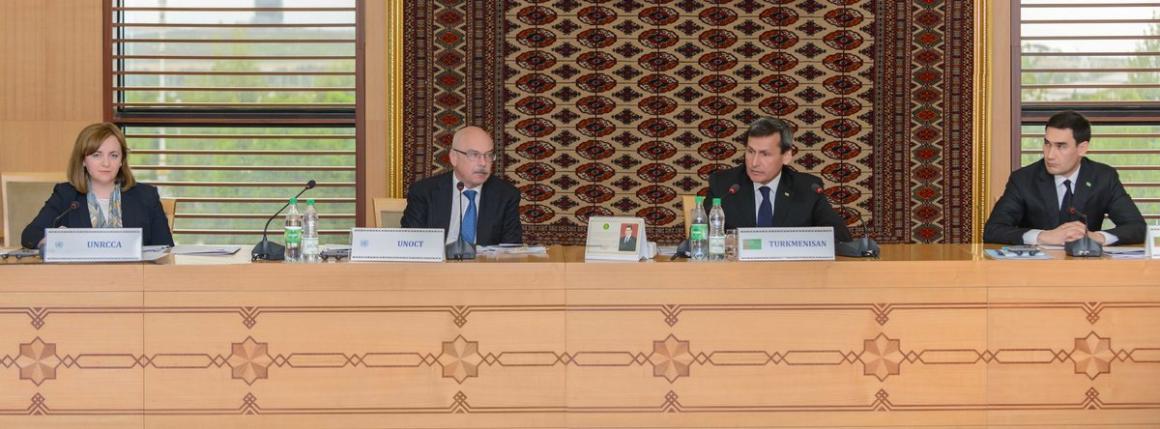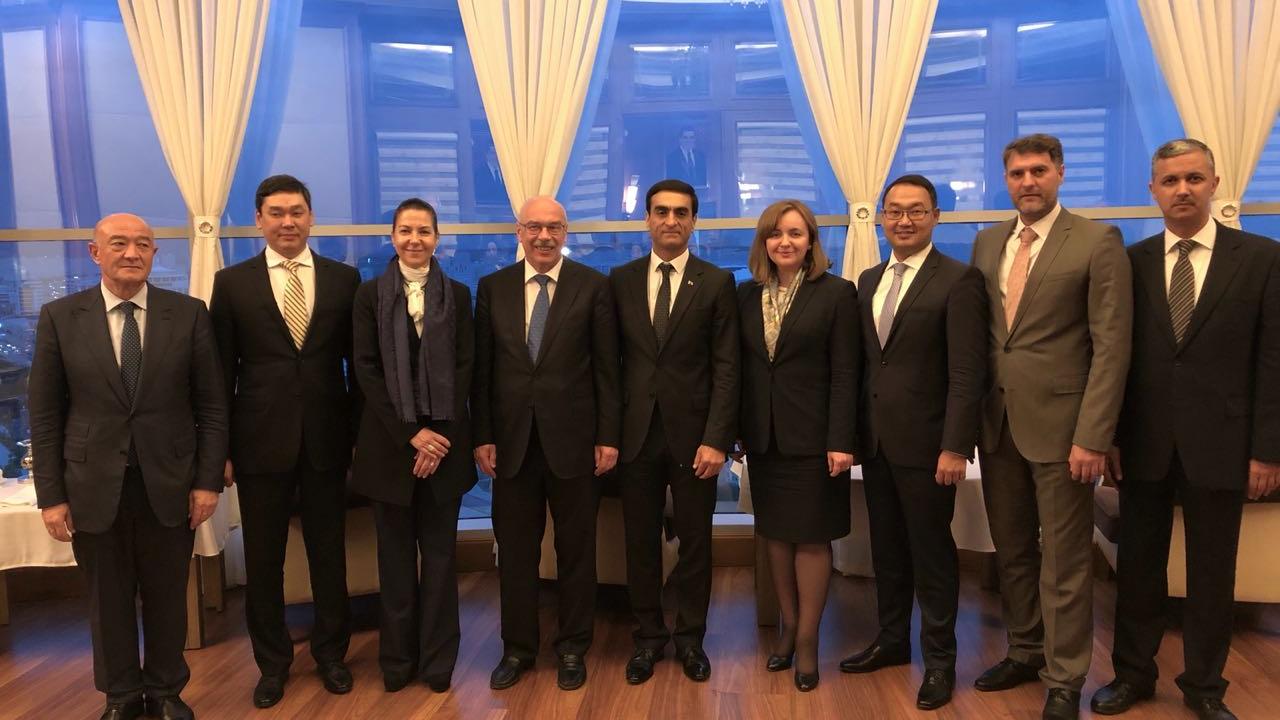ASHGABAT, Turkmenistan
The Under-Secretary-General of the United Nations Office of Counter-Terrorism (UNOCT), Vladimir Voronkov, and Michèle Coninsx, Assistant Secretary-General and Executive Director of the Counter-Terrorism Committee Executive Directorate (CTED), have just concluded a joint high-level visit to Ashgabat, Turkmenistan.
During the first day of the visit, Mr. Voronkov, accompanied by Ms. Natalia Gherman, the Special Representative of the Secretary General (SRSG) for the UN Regional Centre for Preventive Diplomacy for Central Asia (UNRCCA), met with President Gurbanguly Berdimuhamedow and discussed potential areas of cooperation between Turkmenistan and the UNOCT. Mr. Voronkov thanked the President for Turkmenistan's contribution to the regional stability.
On the second day of the programme, the delegation, joined by Ms. Coninsx, attended a high-level launch of the next phase of a regional project to counter terrorism in Central Asia. This project is jointly implemented by the UNRCCA and the UN Counter-Terrorism Centre within the UNOCT.
The high-level launch was hosted by H.E. Rashid Meredov, Vice Prime Minister and Minister of Foreign Affairs of Turkmenistan, and SRSG Gherman. The event gathered the Deputy Foreign Ministers of five Central Asian States – Kazakhstan, Kyrgyzstan, Tajikistan, Turkmenistan, and Uzbekistan – Heads of Regional Offices of international organizations, representatives of government institutions of Turkmenistan, the diplomatic community, and accredited media.
In November 2011, the five countries developed a regional initiative to implement the United Nations Global Counter-Terrorism Strategy, known as the Joint Plan of Action for Central Asia (JPoA).
The JPoA is now entering its third phase. "Towards a Comprehensive Implementation of United Nations Global Counter-Terrorism Strategy in Central Asia” is broader in scope and consists of capacity-building activities in common priority areas. The latter were identified by the Central Asian Member States and the United Nations at a High-Level Dialogue on Counter-Terrorism that took place in June 2017 in Ashgabat and was attended by UN Secretary-General António Guterres. The JPoA embraces preventive measures against terrorist threats in the region, emphasizing information and best practice sharing, as well as regional partnerships. The new initiative will mainstream human rights in its implementation.

At the launch, Mr. Voronkov commended the five Central Asian countries on their efforts to address the threat posed by terrorism and violent extremism in a coordinated manner. “Increasing international cooperation at the regional and global levels is a must to effectively fight terrorism and violent extremism conducive to terrorism,” he said. “The Joint Plan of Action for Central Asia clearly demonstrates the benefits of regions coming together as one to tackle the scourge of terrorism,” he added.
Michèle Coninsx, Assistant Secretary-General and Executive Director of the Counter-Terrorism Committee Executive Directorate (CTED), noted that since 2015 had CTED conducted assessment visits, on behalf of the Security Council Counter-Terrorism Committee, to all five countries of Central Asia, most recently to Turkmenistan in November 2017. “These visits have yielded a wealth of information on the counter-terrorism capacities and technical assistance needs of these States and provided the Committee and CTED with a complete picture of the counter-terrorism situation in the region,” she stated.
UNRCCA will facilitate regional and cross border cooperation in preventing violent extremism and countering terrorism, in coordination with other international and regional partners active in this field in Central Asia. "Today's event, which focuses on preventing violent extremism and countering terrorism, should be seen through the prism of international and regional cooperation, since tackling these phenomena cannot be left to one state alone, or just a group of them. It is a much larger effort that is required for an effective response to terrorism and violent extremism, "said SRSG Natalia Gherman.
Deputy Foreign Ministers of Central Asian States described their countries’ vision and efforts to tackle the phenomenon of terrorism and extremism through their national strategies.
At the conclusion of the visit, participants reiterated their commitment to working with the United Nations in support of implementing the Global Counter-Terrorism Strategy and its Joint Plan of Action for Central Asia, in particular through the new phase of this regionally owned counter-terrorism initiative.
****
For more information, visit www.un.org/counterterrorism or contact
Ms. Bahargul Rahmanova, Public Information Specialist, UNRCCA Turkmenistan, rahmanova@un.org
Ms. Gerard, United Nations Office of Counter-Terrorism, New York, gerardl@un.org
Mr. Mattias Sundholm, Counter-Terrorism Committee Executive Directorate, New York, sundholm@un.org


